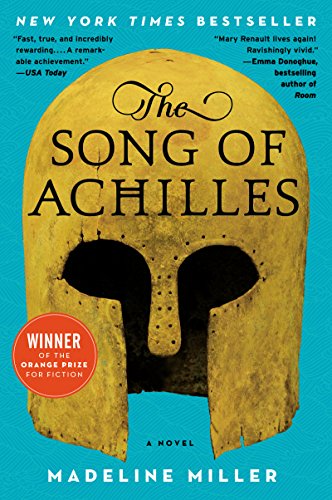Our Witch's Story: A Book Review of Circe by Madeline Miller
A beautiful goddess with eternity and endless luxuries to spend, is banished to a windswept island. While mere mortals would crack from a lifetime punishment of being destitute, Circe uses her seclusion preparing for her destiny written by the Fates. Countless years she commits to practicing her craft, easing her restless spirit, and hosting lost travelers and banished nymphs. Circe’s lessons and charms are not always what one would prescribe for themselves and her fame spreads after she develops a system of defense that keeps intruders to the island submissive.
The modern-day reader knows Circe as the witch who entangled Odysseus and his crew, on their journey home to Ithaca, by turning his men to pigs. The audacity of her act against one of our favorite mortal heroes distracts us from inquiring into her reasoning. Not ever wanting to relate to a witch who lashes out at men, we keep ourselves from guessing at what evil intentions men might have towards misunderstood, exiled goddesses.
Madeline Miller, author of Circe, has been thinking through that question for years and put her best guess down on paper. Miller states and responds to the question we should have all been asking after reading The Odyssey: Why would Circe turn men into pigs?
Miller admits, in countless interviews and lectures, her obsession with the classics. She read the inspiration for her latest novel, straight through at age thirteen. But she was never satisfied with the story entirely. And that dissatisfaction emboldened her, many years later, to devote immense energy and sympathy to the banished daughter of the Sun God. Not only did Miller dust off a famous legend by using modern language, personable characters, and updated formatting but she breathed life into a lost Greek treasure.
Miller connects herself and readers to the classic Greek myths by weaving them directly to the issues and stories of 2019. She is an author that believes all topics of mankind are universal and timeless, so as a writer why even attempt to change them?
While I arrived midway through the book a bit disappointed with the direction of the story because I thought I wanted a fresh follow up to the Circe legends; Miller flexes her own talents by writing a personalized account of the famous goddess. Some of the scenes were so simple and human. Miller frequently stages important conversations around the dinner table, and that choice works well to humanize the goddess. Reading Circe feels like face time with a famous, larger than life star and hearing them reveal their ordinariness. If I were to ever sit across from Marilyn Monroe or Kurt Cobain, I could now imagine them lamenting the famous lives they were thrust into, only knowing loneliness and extra-ordinariness.
My opinion of Circe flipped after completing this novel. The Odyssey and many poems alluding to her caused me to be horrified by the Witch of Aiaia. The thought resonated for years: what torturous figure would transform people into hogs to be penned in a sty? Her treatment of the visitors to her island seemed worse than murder. But Miller’s immensely empathetic stance toward Circe was more than convincing. This book is transformative for the goddess’s legacy. Part of me wonders who else from Greek lore does Miller have compassion for?
In a nonjudgmental way, Miller invites readers to rethink their stance on typical villain and ousted types. The larger message became clear when I listened to an interview of the author by a journalist from Britain’s Channel 4 News. Miller drew attention to the typical aversion in the Classics community toward women authors, in ancient times as well as in more recent history. Recognizing her own capability, she nudged at the traditional academic structure by creating a retelling of a famous male dominated epic. And she punctuated her stance by framing the story around the perspective of the goddess who outsmarted the male hero. Circe is a strong female character who many if not most of us have been overlooking our entire classical education and beyond. Miller, kindly asks each reader, to take a second look and listen.
As a succinct lesson for us all to take home, Miller states, “I think one of humanity’s greatest gift is empathy, and I think that is the work of fiction. Fiction’s job is to exercise that empathy.”
Circe for me is a buy and pass along book. There were many components I enjoyed from a literary standpoint and it is unnecessary to analyze just how well Miller is versed in the Greek Classics. Her text is enjoyable because she is a passionate, practiced writer. And due to the way her care shines from the pages, I am confident she intended for her novel to be read by many, rather than hoarded for study or academic referencing. Parts of the text stick out in my memory but only to form my cohesive thought of concern for the marginalized characters, real and fictional, throughout the ages. How many of them have we not seen as we stared in wonder at what we assumed was the most fitting hero?
I am handing this book over to you, the next reader. I learned about a new type of story by reading Circe and I want you to be a part of the conversations we could be having.
If you enjoyed reading Circe, then give one of these titles a try! The Penelopiad is a personal favorite of mine. I keep clips of the poetry that is embedded, pinned all over my writing space for inspiration.




